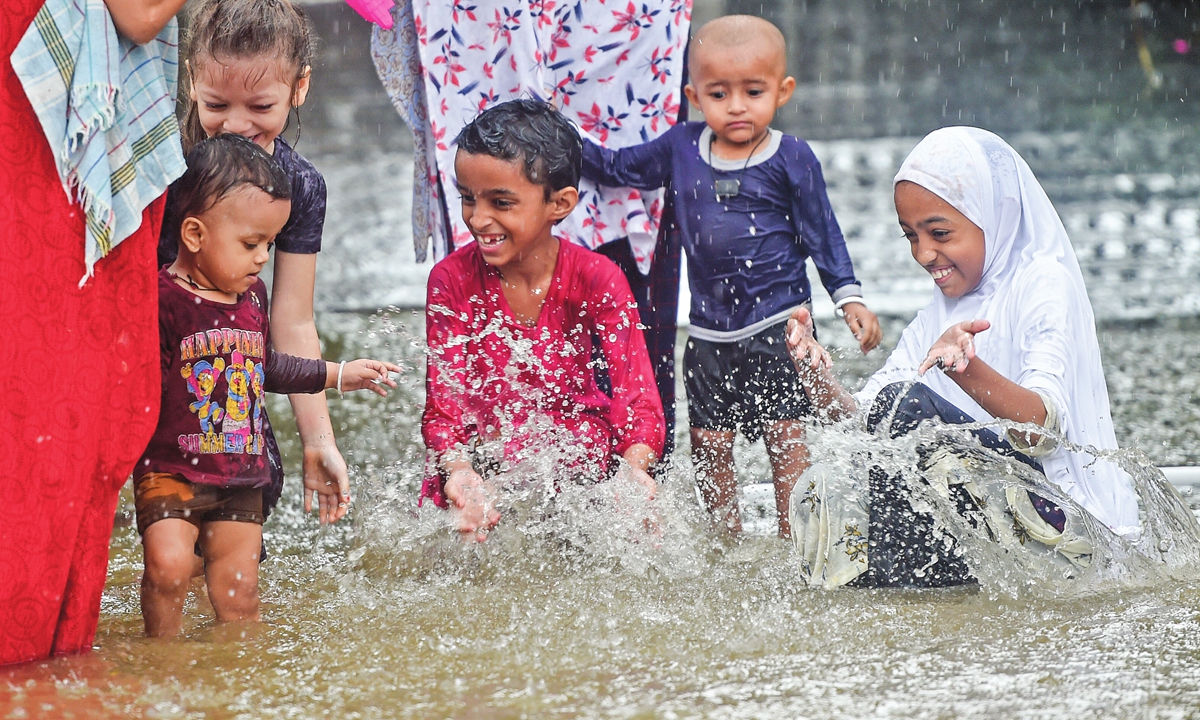India asks local leaders to boost anti-trafficking drive amid virus threat
Source: Reuters Published: 2020/7/16 19:08:40

Children play in a flooded street during a rain shower in Mumbai, India on Wednesday. The monsoon season, which usually falls from June to September, is crucial to the economy of the Indian sub-continent, but also causes widespread death and destruc¬tion across the region each year. Photo: AFP
Village councils and community groups in India have been asked to protect children from traffickers and help authorities identify and rescue missing residents, amid concerns that the coronavirus pandemic is pushing more people into modern slavery.
India's home affairs ministry issued an advisory in July urging state governments to set up or improve local anti-trafficking units, and work closely with community leaders to warn people about traffickers taking advantage of the outbreak.
Local councils may be asked to keep a register of villagers and track their movements to prevent children from being "transported on a large scale for wage labor, prostitution and trafficking," said the directive by the ministry's women safety division.
State governments have also been tasked with launching anti-trafficking awareness campaigns, in addition to ramping up surveillance at bus stops, train stations and state borders.
"Generation of awareness at all levels is considered a very potent and effective weapon to fight the crime of trafficking and exploitation of women and children," the advisory said. Officials and activists fear countless jobless people without food or money may fall prey to traffickers.
Newspaper headline: India urges local leaders to curb trafficking
Posted in: ASIA-PACIFIC